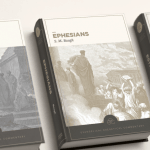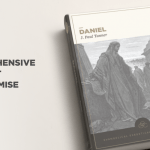
There is a tendency to think of the Old Testament prophets as “doom-and-gloom” since they often proclaim coming judgment for failing to follow Yahweh. There is definitely a lot of judgment in many of the prophets. And Micah has his fair share. Yet, as I studied Micah, I was struck by the hope that Micah instilled in his audience at the same time he issued their judgments.
Micah’s very structure communicates hope. The book is composed of three panels of oracles. Each begins with an indictment oracle (1:2-16; 3:1-12; 6:1-16) and ends with a hope oracle (2:12-13; 4:1-5:14; 7:7-20), and all but the middle panel have a woe oracle in between (2:1-11; 7:1-6). This three-panel structure that always ends in hope is refreshing.
It was the middle hope oracle that drew my attention the most (4:1-5:14). Most scholars identify a chiasm (A-B-C-D-C’-B’-A’) in the hope oracle of Micah 4-5. Yet, they don’t exactly agree on how the chiasm is divided or what its purpose is. As someone who is skeptical of most claims of chiasms, I had hoped to disprove the existence of a chiasm since there was not widespread agreement on its division or the themes. I was, then, utterly surprised—and honestly, a bit disappointed—to find a lexically marked chiasm. But once I started studying the structure of the chiasm, I became enthralled.
A chiasm is arranged so that the innermost section is the peak, where the main point/focus is given. The peak of this oracle (4:1-5:1) does something unexpected: it brings together hope and judgment. These two things at first glance seem more like oil and water than peanut butter and jelly. In the midst of a hope oracle that encourages the Israelites with immense hope, he—unexpectedly—brings up their judgment. Micah explains that their hope is tied together with their judgment. They must go into exile (judgment) but they will be delivered (hope).
Writhe and bring forth, daughter of Zion, like one giving birth!
For now you will leave the city and dwell in the field,
And go to Babylon, there you will be delivered,
There Yahweh will redeem you,
From the power of your enemies. (4:10)
The judgment of Yahweh’s people, which is better described as discipline, is the reason they can have hope. Discipline is not the opposite of hope. Rather, for those who are Yahweh’s people, it is an integral part of hope. Micah explains that the very reason why he can give them hope is that Yahweh loves them enough to discipline them. They can endure their discipline because they know it is not the end. There is something better that will come on the other side of the purifying discipline.
Seeing this combination of judgment and hope caused me to reflect on how different the prophets are from what I used to think they were. When I entered seminary, the prophets were a mystery to me—one that I didn’t really want to solve. I had only previously seen their doom and gloom. Throughout seminary, I began to see them differently. And studying Micah reinforced the real truth of the prophets: for Yahweh’s people judgment is love and hope waits on the other side.
This guest post was written by JoAnna Hoyt, author of Amos, Jonah & Micah: Evangelical Exegetical Commentary (Lexham Press, 2019).






